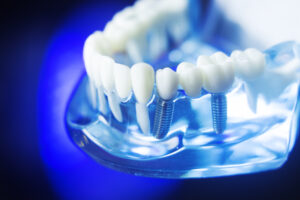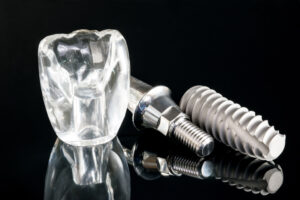Scaling and root planing is a common dental procedure often referred to as a deep cleaning. You will only need a deep cleaning if your dentist informs you that you have gum disease. For those with chronic gum disease, scaling and root planing may be recommended as often as once per year, while others may only need it once in their lifetime. It is important to understand the need for periodontal maintenance every 3 months, as periodontal disease is chronic and must be monitored more frequently to prevent relapse. Here’s everything you need to know about scaling and root planing.
What is Scaling and Root Planing?
Scaling and root planing is a dental procedure that restores your gums to good health. It is only indicated for patients who have moderate gum disease. Nervous, fearful, and anxious patients are encouraged to speak with our dentists about sedation options that may be appropriate to make your appointment less stressful.
The procedure will begin with anesthetizing the area of your mouth to be treated during the appointment. In some cases, scaling and root planing will require multiple dental visits. Once the anesthesia has taken effect, your dentist or dental hygienist will begin scraping plaque and tartar from the teeth at the gum line and in the gum pockets. Then the tooth roots will be smoothed to promote reattachment of the gum tissue to your teeth. Smoother tooth roots make it more difficult for bacteria to attach and form plaque and tartar.
Your dentist or hygienist may also apply antibiotics during your treatment. At our practice, we use Arestin®, which are tiny antibiotic microspheres placed directly in the gum pockets to eradicate any remaining infection.
Why Did I Develop Gum Disease?
Inadequate oral hygiene habits are the primary reason patients develop gum disease. However, even those who brush twice daily and floss regularly can develop gum disease. Reasons that you may have developed gum disease include:
Genetics
Gum disease tends to run in families. So if your parents have a history of oral bacterial infections, perhaps due to deep pockets in the gum, you may be more susceptible to gum disease.
Certain Medications
Dry mouth is a common side effect of countless medications. Unfortunately, dry mouth enables bacteria to spread faster, increasing your risk of gum disease.
Hormonal Changes
Hormonal changes resulting from menstrual cycles or pregnancy can make your gums more susceptible to infection. If you are expecting, practicing excellent oral hygiene and seeing your dentist regularly is crucial. Untreated gum disease has been linked to low birth weight and premature birth.
Vitamin Deficiencies
Vitamin deficiencies can make you more likely to develop gum disease. Poor nutrition weakens your body’s immune system, making you susceptible to developing gingivitis or periodontitis. Vitamin C and Vitamin A are essential for maintaining healthy gums.
Age
As we age, our risk for problems with oral health increases, just as our risk for issues with overall health increases. The Centers for Disease Control (CDC) reports that nearly half of adults in the U.S. over the age of 30 have some form of periodontal disease. By age 65, more than 70% of people in the U.S. will have some form of periodontal disease.
Deep Cleaning for Gum Disease Treatment in Monmouth County
If you are diagnosed with gum disease, our expert dentists will recommend that you schedule an appointment for scaling and root planing as soon as possible. For some patients, a single scaling and root planing appointment will resolve the bacterial infection in your gums. For patients who are susceptible to gum disease, scaling and root planing may be required once or twice a year. If you’re ready to start your journey to better oral health with Dr. Richard Champagne and a truly collaborative and compassionate dental team, contact Champagne Smiles in Morganville, NJ today to schedule your first appointment.




